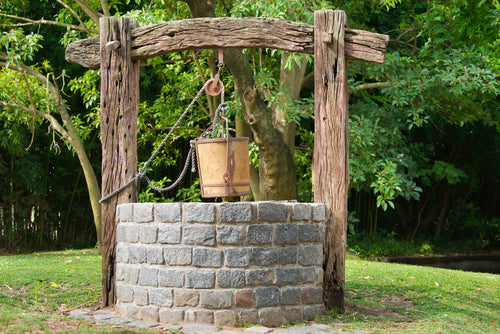
Aug 01 , 2017
What Are the Differences between Well Water and Tap Water?
Chemically, it consists of two hydrogen atoms bound to an oxygen atom. Seventy-five percent of the earths surface is covered in it. Two-thirds of our bodies are comprised of this substance.
The answer is obviously water, right?
Water is necessary for life, but we obtain our water in different ways, and these differences can affect how we use it. For a variety of reasons, people will filter their water, drink out of bottles or soften their water.
What are the differences between well water and tap water?
Well Water
Individuals in rural areas may get their water from wells on their land. Some towns and water supply companies may get their water from deep wells, drilled into the local aquifer. Water from wells generally requires less treatment than surface water.
Ground water, which may be found deep in the underlying rock and soil, contains far less contamination than surface water. The layers of rock and soil between the surface and the groundwater has filtered most contaminants out, although some minerals may have been picked up by the water as it filtered down to the aquifer.
Well water tends to have a higher mineral content than surface water. In most cases, the mineral content will not be corrosive. If you have water high in calcium or magnesium hard wateryou may want to soften the water to make it better for your pipes and washing, although it wont harm you. Many of the minerals in water are necessary for human life, although water shouldnt be regarded as a significant source of them.
You may not need to treat your well water otherwise if you have a personal well. You should check it annually, or anytime it changes in appearance or taste. If it has become contaminated, a variety of ways to treat it are available.
One home remedy for personal well water is shocking the well. While several commercial products for shocking the well are available, the easiest may be to use household bleach (unscented). Make sure you buy some bottled water before you shock the well, as the process will take a day.
Water Supply Systems: Wells and Surface Water
Water from wells owned by the town or commercial supplier of water is treated similarly to groundwaterreservoirsupplies. Although ground water does not need as much treatment, the suppliers may be subject to tighter regulations if they mix ground water and surface water.
Towns providing surface water only may be able to rely on disinfectant only if the watershed meets certain criteria, but generally, surface water must be treated more extensively than groundwater.
The first step in treatment uses positively charged chemicals to remove dirt and other dissolved particles. This step produces sediment at the bottom of the water supply. The remaining clear water is then filtered through charcoal, sand and/or gravel in varying pore size.
This filtration removes remaining dissolved particles, including dust, bacteria, viruses and other chemicals. Finally, a disinfectant such as chlorine is added to kill remaining parasites.
Some water supplies may add fluoride to prevent tooth decay. Also, orthophosphate is added by half the water companies in the country. This chemical neutralizes chlorides, which are both naturally occurring and can come from road salt, which contribute to pipe corrosion. In the Flint water crisis, orthophosphates were not added, contributing to the lead in the Flint water supply, even though adding the chemicals costs $100 per day for the system.
Wells vs. Tap Water
Tap water is the water which comes to you from your town water supply; if you get your water from a well, you have well water. The water supply system in the U.S. is generally remarkably safe, even given some of the recent crises.
Using a personal well is not permitted in many cities and towns. For public safety reasons, all residents get their fresh water from the municipal system. This water is thoroughly and effectively treated and is safe to drink.
The mineral content, of course, may affect the tastethe town treatment program may let some minerals through the system. You may decide that a water filter might help with the taste of the water.
If you have your own well, you have some additional items to consider. Annual testing is advisable, both for particulate and biologic contamination. Shocking the well or having it professionally treated may be a good idea, also, especially for vacation homes at which the water is off for an extended period. And, depending on the mineral content, you might want to consider a water filter, also.


